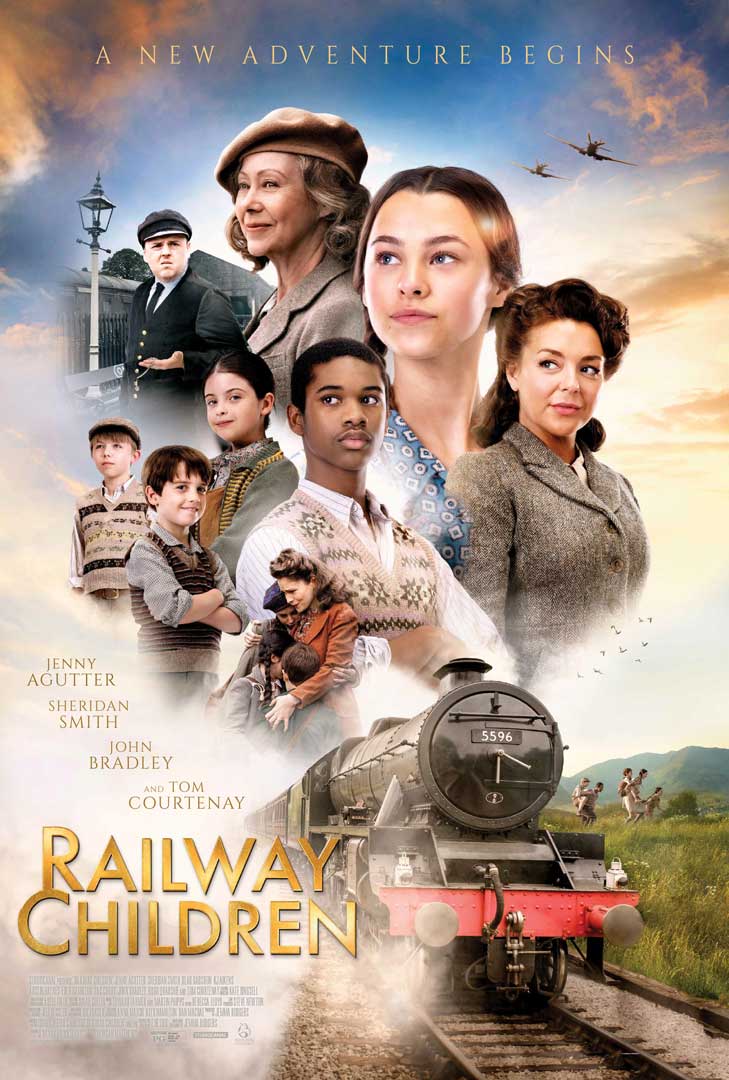Lionel Jeffries’ 1970 The Railroad Youngsters is ‘Tea and Crumpets: The Film’, a warm, agreeable, jaunty jape highlighting plummy children waving at the 9:15 to London, chilled buns, paper pursues and Bernard Cribbins fluttering among parody and poignancy, all enveloped with shockingly opportune worries about scaling back and being caring to outsiders. The presence of OG Rail line Kid Jenny Agutter, repeating her job as Bobbie in this harder yet kid-accommodating re-turn, proposes this is an inheritance continuation — a ‘Rail line Kids: Free thinker’, on the off chance that you like — yet while Morgan Matthews’ film embraces plot centers, topical thoughts and visual themes from the principal film, it for the most part does whatever its might feel like doing narratively.

The film’s savviest choice is to find the children have-songbirds in-the country ploy inside the departure of kids from significant urban communities during The Second Great War, adding an unmistakable propensity of dread that is kept up with all through (it likewise dovetails flawlessly with Agutter’s age). So experienced Lily (Playmate Gadsdon), hardheaded Pattie (Eden Hamilton) and brassy scoundrel Ted (Zac Cudby) are pressed off to Oakworth and taken in by head educator (and Bobbie’s little girl) Annie (Sheridan Smith), her child Thomas (Austin Haynes) turning out to be quick companions with his new housemates.

The primary half-hour or so is an amiable arrangement of hello curse — trickeries with chickens, mud, secret hideaways and disagreements with local people who toss conkers and coal — that are raised through the science among Smith and the youthful entertainers. Things take a more emotional turn when the group finds Abe (KJ Aikens), a youthful, harmed African-American GI who turns an unconvincing line about being on a mysterious mission. With a wink to Bryan Forbes’ Whistle Down The Breeze, the children help the baffling outsider without the information on the adults.

The signs of approval for the first are unpretentious — the main appearance of Agutter descending the slope is outlined, blossoms in the closer view, straight out of the 1970 variant; Johnny Douglas’ unique subject gets a circulating in Martin Phipps and Ed Rancher’s enormous, charming score — and the film doesn’t share a significant part of the first’s advantage and feel for the brilliant period of steam (this could be known as ‘The Rail route Siding Youngsters’). Drifting around the edges, Agutter’s Bobbie is credibly a previous suffragette (there is a discussion about the absence of ladies in Whitehall that appears suddenly) and Tom Courtenay is a warm presence as Bobbie’s Churchill-mimicking brother by marriage, Uncle Walter.

It needs whatever really invigorates and amuses, some of it is excessively spot on, and the peak decays into kids-making all the difference 101 that plays against a portion of the previous earnestness. Be that as it may, the filmmaking is very much created, Danny Brocklehurst’s screenplay adds some coarseness and, following on from X+Y, Matthews gets great exhibitions from his young entertainers. KJ Aikens is engaging as Abe, yet it’s Lover Gadsdon, youthful Jyn Erso from Rebel One, who gives the film a magnetic focus, by turns hard and helpless, kid like and savvy, impeccably catching the shelter of immaturity.

Leave a Reply